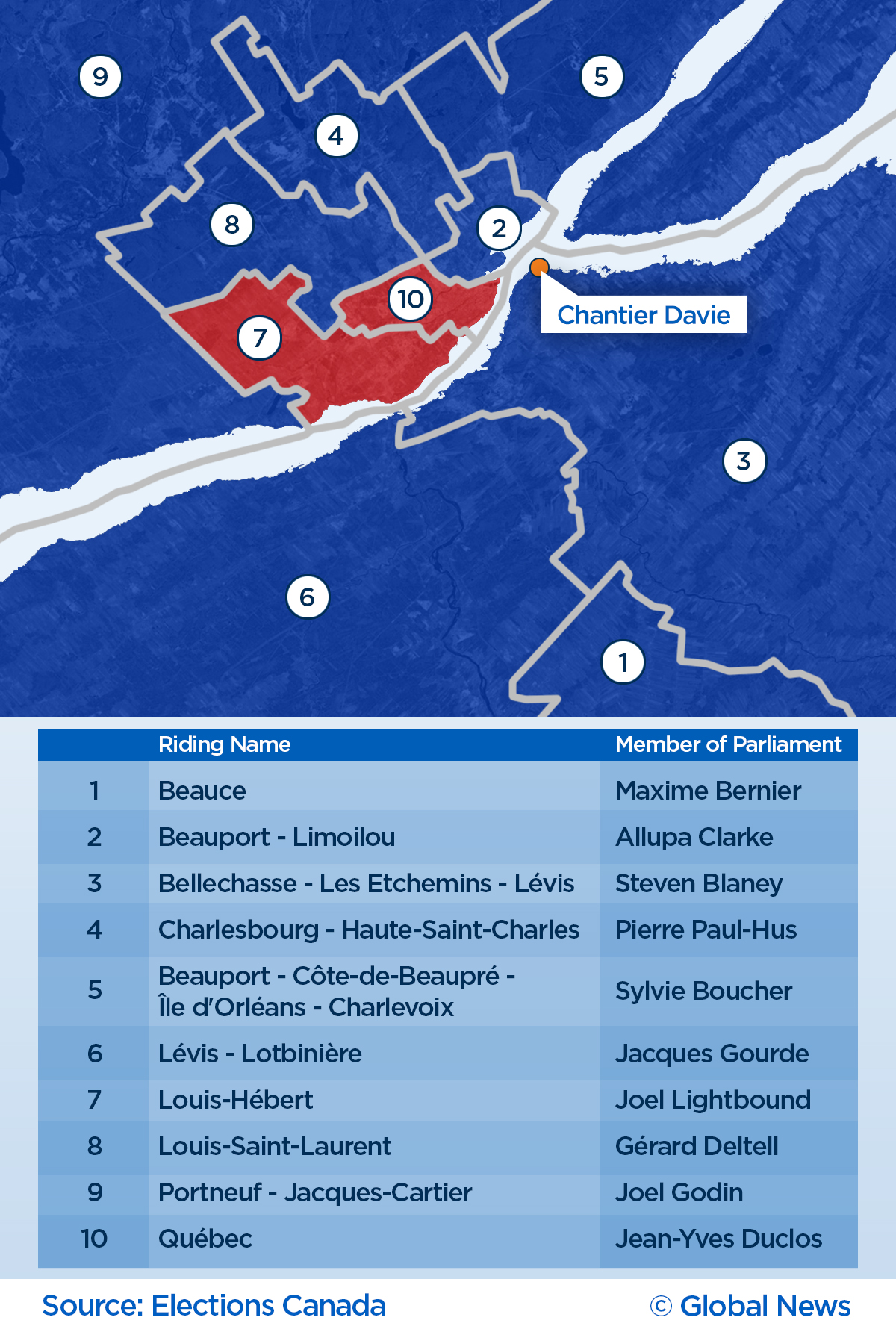Prime Minister Justin Trudeau has pledged billions of dollars for a renewal of the Canadian Coast Guard fleet, but while work to hammer out new shipbuilding deals will start shortly, it’s unlikely any new contracts or agreements will be signed before the fall election.

Global News has learned federal officials do not expect to award contracts for any of the promised 18 new coast guard vessels or sign a deal to bring a third shipyard into the National Shipbuilding Strategy before Canadians head to the polls in October.
But the work to begin those processes will get underway in the coming weeks and months amid political uncertainty around Liberal fortunes in Quebec.
READ MORE: Trudeau pledges billions for new coast guard fleet but mum on how he plans to circumvent delays
According to one official, the government aims to get to an umbrella agreement with that third shipyard similar to what it has with Irving and Seaspan, the other two shipyards currently involved in the National Shipbuilding Strategy.
Those umbrella agreements lay out the rules and terms of negotiation over work bid on by the shipyard under the National Shipbuilding Strategy.
However, the umbrella agreements are not contracts for work, and in the case of the National Shipbuilding Strategy, a copy of one of the original agreements obtained by Global News makes it clear that a shipyard under an umbrella agreement is not guaranteed any of the contracts that may result under the strategy.
WATCH: Shipbuilding bid causes concern about potential implications in Nova Scotia

The agreement also states the government is free to add or remove non-contracted work from the plates of individual shipyards as it sees fit.

Get breaking National news
Those terms could be significant if a third shipyard comes into play under the National Shipbuilding Strategy.
Sources both within and outside the government say there is no other viable candidate that could qualify to be that third shipyard other than Chantier Davie.
Based in Levis, Que., the shipyard is just across the river from Quebec City and is part of a region where the Liberals hold two of roughly 10 available seats and will need to either hold or gain across the province to maintain their majority government.
Liberal MP Joel Lightbound represents the Quebec City riding of Louis-Hébert while Minister of Families, Children and Social Development Jean-Yves Duclos holds the nearby riding of Quebec.
Duclos won his riding by just two percentage points ahead of the NDP candidate while Lightbound won by roughly seven per cent ahead of the Conservative.
The nearby riding of Charlesbourg-Haute-Saint-Charles elected Conservative Pierre Paul-Hus by roughly 20 per cent in 2015, and apart from briefly flipping to the NDP during the Orange Wave, the riding has been held by either the Conservatives or the Bloc Quebecois for decades.
Louis-Saint-Laurent, the riding held by Conservative Gerard Deltell, elected him by more than 50 per cent of the vote after narrowly electing an NDP candidate in 2011 following years of sending Conservatives to Parliament Hill. Conservative Jacques Gourd also won Lévis—Lotbinière by more than 50 per cent in 2015.
The actual riding where the Davie shipyard is located, Bellechasse-Les Etchemins-Lévis, has elected Conservative Steven Blaney with between 44 and 51 per cent of the vote since 2006.
People’s Party of Canada Leader Maxime Bernier, formerly a Conservative, has won his nearby riding of Beauce with more than 50 per cent of the vote since 2006, which was when the Liberals lost control of it after holding it since 1997.
WATCH: With SNC-Lavalin in the rear view, support for Liberals and Conservatives tighten — Ipsos poll

But several of the Conservatives in the area also won their ridings by much smaller margins, raising questions about whether their seats could swing given the right circumstances.
Conservative Alupa Clarke won Beauport-Limoilou with 30 per cent of the vote compared to the Liberal candidate and the NDP candidate, who separately garnered 25 per cent each, while Conservative Sylvie Boucher won Beauport—Côte-de-Beaupré—Île d’Orléans—Charlevoix by roughly seven per cent.
Boucher’s closest competitor was a Liberal.
Apart from 2011, when Clarke’s riding of Beauport-Limoilou went to the NDP, it has jumped back and forth by single-digit margins between the Conservatives and the Bloc Quebecois with the Liberals trailing in third place.
While the Liberals had roughly 38 per cent of the support in Quebec during an Ipsos poll for Global News in March, both the Conservatives and Bloc Quebecois were polling at 25 and 23 per cent, respectively, with the latter poised to potentially capitalize on collapsing NDP support in the province.
Those shifting dynamics up the pressure on the government to shore up support in the region and across the province, with one shipbuilding source suggesting the government would be wise to head into the election with a deal under their belts that can garner some goodwill in the region.
While a federal source acknowledged the goal is to work quickly, they were skeptical that the work needed to award those deals could be processed in time.
Chantier Davie estimates that allowing it into the National Shipbuilding Strategy would create about 2,000 new jobs in the region.









Comments